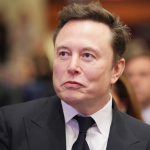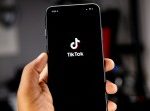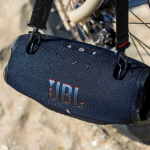MANDEL NGAN/AFP via Getty Images
- Mike Lindell said his company MyPillow is suing Dominion for $1.6 billion.
- Dominion had filed an earlier $1.3 billion lawsuit against Lindell over his voter-fraud conspiracy theories.
- See more stories on Insider’s business page.
MyPillow is suing Dominion Voting Systems for $1.6 billion, its CEO Mike Lindell said Monday.
The suit appears to be a counterattack after Dominion filed a $1.3 billion defamation lawsuit against both the company and its Lindell in February.
MyPillow has now sued Dominion for $1.6 billion, Lindell announced in a livestream on his social-media site Frank on Monday.
“This is all about the first amendment rights and free speech,” Lindell said.
Frank
The Wall Street Journal reported Monday that the suit makes a distinction between MyPillow and Lindell, arguing that the CEO was speaking on his own behalf when alleging election fraud.
Insider was not immediately able to locate documents to verify details of the suit.
Lindell, a major GOP donor, is a staunch ally of former president Donald Trump and has repeatedly supported his claims challenging the integrity of the 2020 presidential election.
Lindell spread the conspiracy theory claiming that Dominion Voting Systems developed technology to switch votes from Trump to President Joe Biden. The theory has been thoroughly debunked.
Per the Journal, MyPillow in the lawsuit said “in making these statements, Lindell spoke for himself, not MyPillow,” the suit says. “MyPillow has not engaged in discussion about the 2020 election.”
Alan Dershowitz, Lindell’s lawyer for the case, discussed the lawsuit alongside Lindell during the livestream on Monday.
“I’ve been defending the first amendment for 60 years, and I’m not going to stop now,” Dershowitz said.
Dominion sued Lindell, Powell, Giuliani, and Fox News
On February 22, Dominion filed a defamation suit against MyPillow CEO Mike Lindell after filing similar ones against pro-Trump attorney Sidney Powell, Trump’s former personal lawyer Rudy Giuliani, and Fox News.
Dominion’s lawsuit accused Lindell of repeatedly making false allegations while knowing there was no credible evidence to support his claims.
As well as rallies, interviews, and a two-hour movie, Lindell used his social-media profiles to spread his baseless claims of voter fraud, and that Dominion built its machines “to cheat.”
Lindell previously told Insider that Dominion had “zero, zero, zero” chance of winning. The lawsuits were part of cancel culture’s attempts at silencing voices, he said.
“I looked at it as a great day for America when they sued me,” Lindell added. “I can put the evidence for the whole world to see, and it’ll be public record, and the media will quit trying to suppress it.”
More than 20 retailers have severed ties with MyPillow
In its lawsuit, Dominion claimed Lindell used the claims as a way to ramp up his pillow sales, advertising on far-right media outlets that parroted his claims and sponsoring a bus tour that sought to overturn the election results.
But Lindell’s lawsuit said that Dominion has caused “grave harm” to MyPillow “as a result of Dominion’s suppression of speech and attacks on the Company, per The Wall Street Journal.
But retailers have scrambled to cut ties with the brand following the insurrection and Lindell’s insistence that the election result was fraudulent.
More than 20 retailers, including Bed Bath and Beyond, Sam’s Club, Kohl’s, and most recently Costco, have stopped selling MyPillow’s products.
Some of the companies cited poor sales, but Lindell blamed it on “cancel culture” and said that people saying they would boycott the brand were “bots and trolls.”
Lindell told Insider that lost retailer revenue would cost the company around $65 million this year, but he added that radio and podcast infomercials could plug the gap.
Twitter also banned Mike Lindell for sharing voter-fraud conspiracy theories on the site. It then suspended MyPillow’s account, too, after Lindell used it to evade his personal ban and accused Twitter CEO Jack Dorsey of being “tied into the election fraud.”
Lindell said in mid-March that he hadn’t been back to his home in Minnesota for two months, instead moving between “undisclosed locations,” and no longer attends in-person events because he fears for his safety.
Powered by WPeMatico






